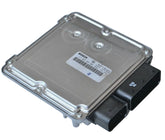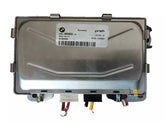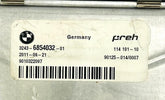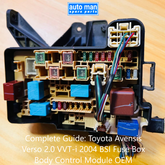Introduction: The Changing Face of Mobility
The year 2025 marks a decisive shift in the global automobile industry. With governments pushing for greener transport and carmakers launching more affordable EV models, the question every driver faces is:
Should you go electric or stick to petrol/diesel?
At AutoMan Spare Parts, we help drivers worldwide — from the USA to the Middle East and Latin America — keep their vehicles running smoothly, no matter the engine type. In this blog, we break down the real-world advantages, disadvantages, costs, and trends of EVs vs petrol/diesel vehicles in 2025.
1. Cost Comparison: Purchase, Maintenance & Running Costs
| Feature | Electric Vehicles (EVs) | Petrol/Diesel Vehicles |
|---|---|---|
| Initial Cost (2025) | Higher upfront (avg. $35,000–$45,000) | Lower upfront (avg. $25,000–$35,000) |
| Running Cost (per km) | 60–70% cheaper | Higher due to fluctuating fuel prices |
| Maintenance | Minimal – fewer moving parts | Regular oil, filter, and engine services |
| Battery Replacement | Expensive (~$5,000–$10,000 after 8–10 years) | No battery replacement required |
| Resale Value | Increasing as EV market grows | Stable but declining in long term |
Ranking keywords: EV vs petrol cost 2025, electric car running cost comparison, maintenance cost EV vs fuel car
2. Performance and Driving Experience
-
EVs: Instant torque, smooth acceleration, silent drive, and regenerative braking.
-
Petrol/Diesel Cars: Strong performance at high speeds, familiar sound, and long-range comfort.
Verdict: EVs win in city performance and acceleration; petrol/diesel still excel in long-distance reliability.
Ranking keywords: EV performance 2025, electric vs fuel car acceleration, best car for long drives 2025
3. Environmental Impact
| Aspect | Electric Vehicles | Petrol/Diesel Vehicles |
|---|---|---|
| CO₂ Emission (per km) | 0 (tailpipe) | High – 120–200 g/km |
| Production Emission | Battery manufacturing emits more | Moderate manufacturing footprint |
| Recyclability (2025) | Improved with new lithium recycling tech | Well-established recycling system |
Verdict: EVs are far more eco-friendly in the long term.
Ranking keywords: EV environmental impact 2025, eco-friendly cars, zero emission vehicles
4. Range and Refueling
-
EVs: Average 350–500 km per charge (Tesla, Hyundai, BYD improving yearly).
-
Petrol/Diesel: 600–900 km per tank with 3–5 min refueling.
Verdict: Fuel vehicles still lead in range and convenience, though EV fast-charging stations are rapidly expanding in 2025.
Ranking keywords: EV range comparison 2025, charging stations growth, long range electric cars
5. Availability and Infrastructure
-
EV Infrastructure 2025: Rapidly growing in the USA, Europe, UAE, and Mexico with ultra-fast charging networks.
-
Fuel Infrastructure: Fully established globally.
Verdict: Petrol/diesel cars remain easier to refuel in remote areas, but the EV network is catching up fast.
6. Maintenance and Spare Parts
At AutoMan Spare Parts, we’ve noticed:
-
EV parts demand: Batteries, sensors, and electronic modules.
-
Fuel car parts: Engines, filters, transmissions, and exhausts remain top-sellers.
We ship both EV and traditional auto parts worldwide, ensuring vehicle owners never struggle for quality components.
Ranking keywords: EV spare parts suppliers, AutoMan Spare Parts, used car parts worldwide shipping, car maintenance 2025
7. Government Policies and Incentives (2025 Snapshot)
| Country | EV Incentive | Fuel Restrictions |
|---|---|---|
| USA | Up to $7,500 federal tax credit | Some states limiting ICE car sales by 2035 |
| UAE | Free parking & toll exemptions in select emirates | Encouraging hybrid/EV adoption |
| Mexico | Reduced import tax on EVs | Low EV penetration, improving infrastructure |
Pros and Cons Summary
| Category | Electric Vehicles | Petrol/Diesel Vehicles |
|---|---|---|
| Pros | Eco-friendly, low running cost, quiet, tax incentives | Readily available, long range, easy refueling |
| Cons | High initial cost, limited charging network | High emissions, high running cost, engine wear |
Final Verdict: Which is Better in 2025?
If you prioritize eco-friendliness, lower long-term costs, and cutting-edge technology, EVs are the clear winner.
However, if you rely on long-distance travel, quick refueling, and established servicing, petrol/diesel cars still hold practical advantages.
By 2030, the balance will likely shift fully toward electric vehicles as technology and infrastructure mature.
At AutoMan Spare Parts, we’re already gearing up to support both — ensuring parts, service, and reliability for every driver’s choice.
TL;DR
-
EVs dominate in running cost and sustainability.
-
Fuel cars still lead in range and convenience.
-
By 2030, EVs will likely outperform in all categories.
-
AutoMan Spare Parts provides parts for both — worldwide.
FAQ
Q1: Are electric vehicles cheaper to maintain in 2025?
Yes. EVs require less maintenance due to fewer moving parts and no oil changes.
Q2: Do EV batteries last long?
Most EV batteries last 8–12 years, depending on use and climate.
Q3: Are there enough charging stations globally?
Yes, major countries like the USA, UAE, and Mexico are rapidly expanding networks in 2025.
Q4: Can EVs handle long road trips?
Newer EVs can travel over 400–500 km on a single charge, making long trips possible with proper planning.
Q5: Which is better for resale in 2025?
Petrol cars still hold resale value, but EV resale value is rising as adoption grows.







